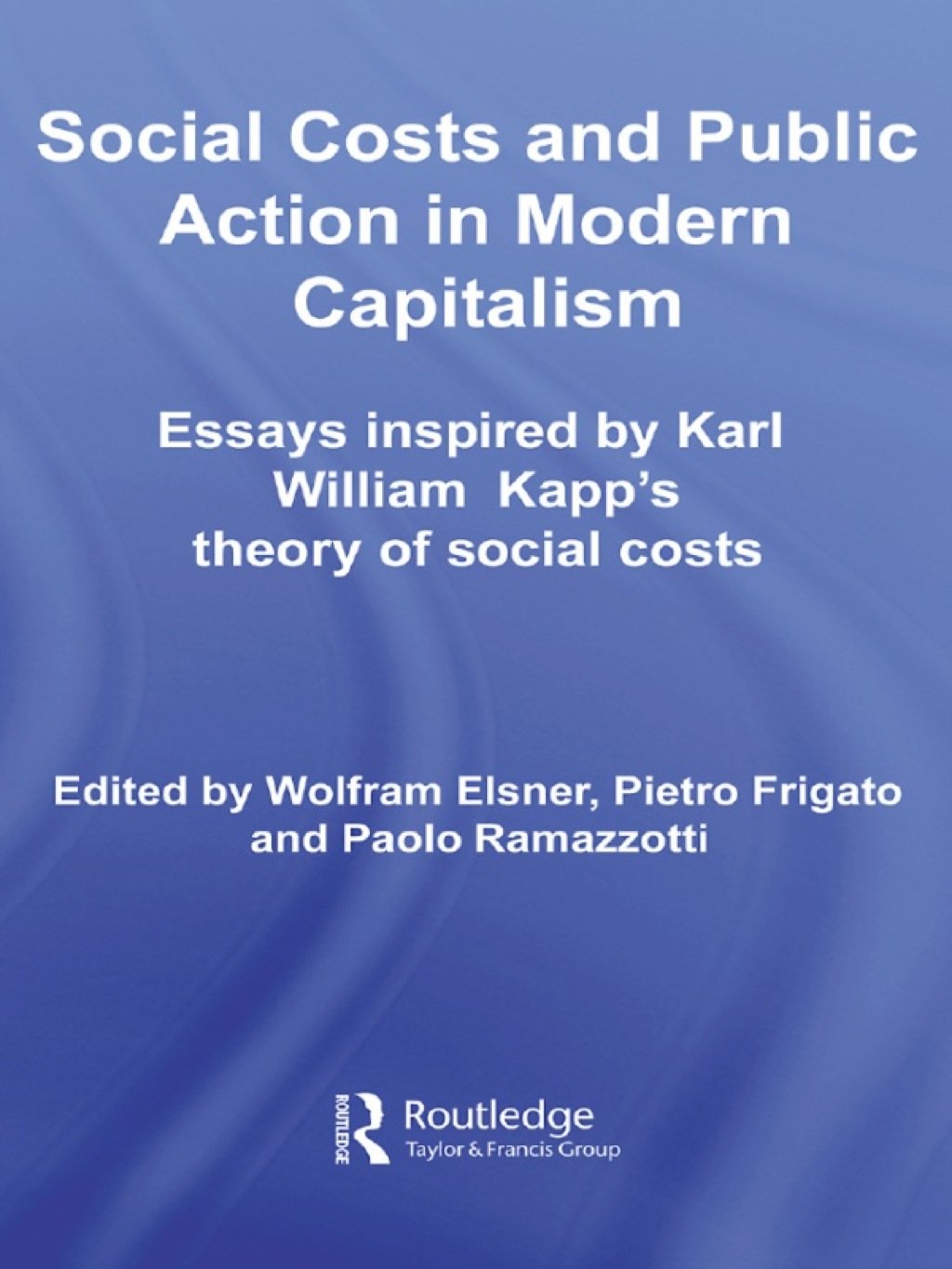Social Costs and Public Action in Modern Capitalism Essays Inspired by Karl William Kapp’s Theory of Social Costs 1st Edition
Author(s): Wolfram Elsner; Pietro Frigato; Paolo Ramazzotti
Publisher: Routledge
ISBN: 9780415413510
Edition: 1st Edition
$39,99
Delivery: This can be downloaded Immediately after purchasing.
Version: Only PDF Version.
Compatible Devices: Can be read on any device (Kindle, NOOK, Android/IOS devices, Windows, MAC)
Quality: High Quality. No missing contents. Printable
Recommended Software: Check here
Important: No Access Code
Description
Description
The Social Costs approach to the globalised capitalist market economy has gained new relevance in recent years. The present situation is one of widespread and increasing deterioration of the social, cultural, democratic, and environmental frameworks of advanced capitalist market societies. This deterioration is indicated by the threats of unemployment, precarious working conditions and increasing income/status inequality, uneven geographical developments, and the exploitation and undermining of the institutional fabric of the society. It is aggravated by the rapid extension – at local, national, regional and global scales – of ecological disruption. So the global capitalist market economy is characterised by a great deal of instability and so-called true uncertainty, which largely undermine its coordinating and welfare-enhancing capacity. The view suggested by Karl William Kapp’s seminal evolutionary open-systems approach is that these processes and problems are the outcome of a widening gap between private individualist economic, and societal values or, to use Karl Polanyi’s terms, of the ever increasing disembeddedness of the economy from society and of the subjugation of society to the economy. The key actor in this process is business or, more specifically, it is the increasingly dominant, globalised, deregulated and disembedded hierarchical and power system of business enterprise. Current analyses of the global capitalist market economy are overdue to be undertaken making use of the powerful analytic frame of Karl William Kapp’s open systems economics. ‘Social Costs and Public Action in Modern Capitalism’ examines this approach from a theoretical, conceptual, empirical, policy and case study level.










